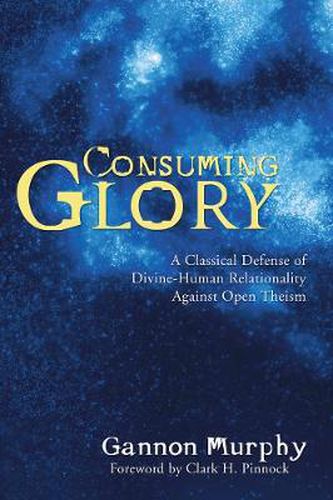Readings Newsletter
Become a Readings Member to make your shopping experience even easier.
Sign in or sign up for free!
You’re not far away from qualifying for FREE standard shipping within Australia
You’ve qualified for FREE standard shipping within Australia
The cart is loading…






This title is printed to order. This book may have been self-published. If so, we cannot guarantee the quality of the content. In the main most books will have gone through the editing process however some may not. We therefore suggest that you be aware of this before ordering this book. If in doubt check either the author or publisher’s details as we are unable to accept any returns unless they are faulty. Please contact us if you have any questions.
In the late 1990s, Open Theism took the theological world by storm. Advocated by several prominent theologians, among them Clark H. Pinnock, the view argues that human beings cannot have a genuine relationship with God if God possesses what classical theology has affirmed to be exhaustive foreknowledge of future events. Such foreknowledge, open theists claim, would make human freedom (and salvation itself) meaningless and divine power akin to little more than meaningless, cosmic puppeteering. While several works have taken the important step of addressing open theisms scriptural deficiencies in its denial of Gods foreknowledge, none have dealt with the vital issue of divine-human relationality and how it can be understood in a classical, orthodox framework that maintains such foreknowledge. Consuming Glory remedies that lack by first providing a fresh critique of open theism using Clark Pinnock’s version of it as representative, but then offering a reconstruction of divine-human relationality centered on the Biblical principle of Christus in nobis (Christ in us). Christus in nobis is coupled with an outworking of meticulous divine providence that serves Gods own self-glorifying orientation. It reverses the relational ordering advocated in open theism by grounding human love of God theologically rather than anthropologically. Love of God and divine-human relationality is established precisely because it is Gods own self-love that is providentially given to us and thus reciprocated as believers are brought into adoptive communion with the Triune Godhead. Drawing on diverse resources throughout the corpus of historical theology, Murphy concludes that divine-human relationality can be summarized as God delighting in himself, in us.
$9.00 standard shipping within Australia
FREE standard shipping within Australia for orders over $100.00
Express & International shipping calculated at checkout
This title is printed to order. This book may have been self-published. If so, we cannot guarantee the quality of the content. In the main most books will have gone through the editing process however some may not. We therefore suggest that you be aware of this before ordering this book. If in doubt check either the author or publisher’s details as we are unable to accept any returns unless they are faulty. Please contact us if you have any questions.
In the late 1990s, Open Theism took the theological world by storm. Advocated by several prominent theologians, among them Clark H. Pinnock, the view argues that human beings cannot have a genuine relationship with God if God possesses what classical theology has affirmed to be exhaustive foreknowledge of future events. Such foreknowledge, open theists claim, would make human freedom (and salvation itself) meaningless and divine power akin to little more than meaningless, cosmic puppeteering. While several works have taken the important step of addressing open theisms scriptural deficiencies in its denial of Gods foreknowledge, none have dealt with the vital issue of divine-human relationality and how it can be understood in a classical, orthodox framework that maintains such foreknowledge. Consuming Glory remedies that lack by first providing a fresh critique of open theism using Clark Pinnock’s version of it as representative, but then offering a reconstruction of divine-human relationality centered on the Biblical principle of Christus in nobis (Christ in us). Christus in nobis is coupled with an outworking of meticulous divine providence that serves Gods own self-glorifying orientation. It reverses the relational ordering advocated in open theism by grounding human love of God theologically rather than anthropologically. Love of God and divine-human relationality is established precisely because it is Gods own self-love that is providentially given to us and thus reciprocated as believers are brought into adoptive communion with the Triune Godhead. Drawing on diverse resources throughout the corpus of historical theology, Murphy concludes that divine-human relationality can be summarized as God delighting in himself, in us.